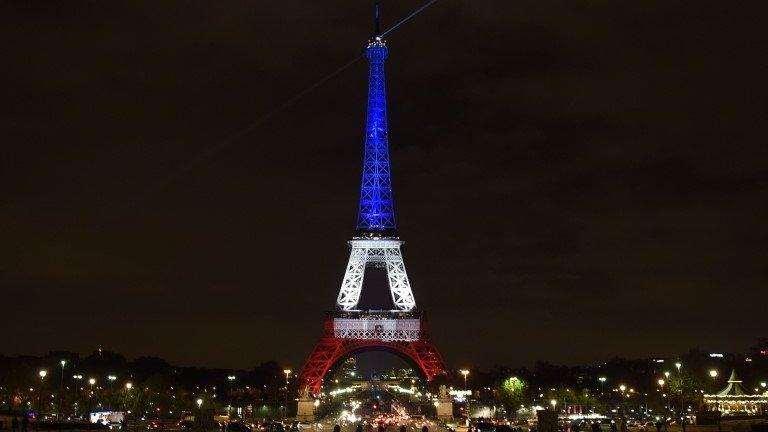Paris attacks: London's French community reacts
- Published
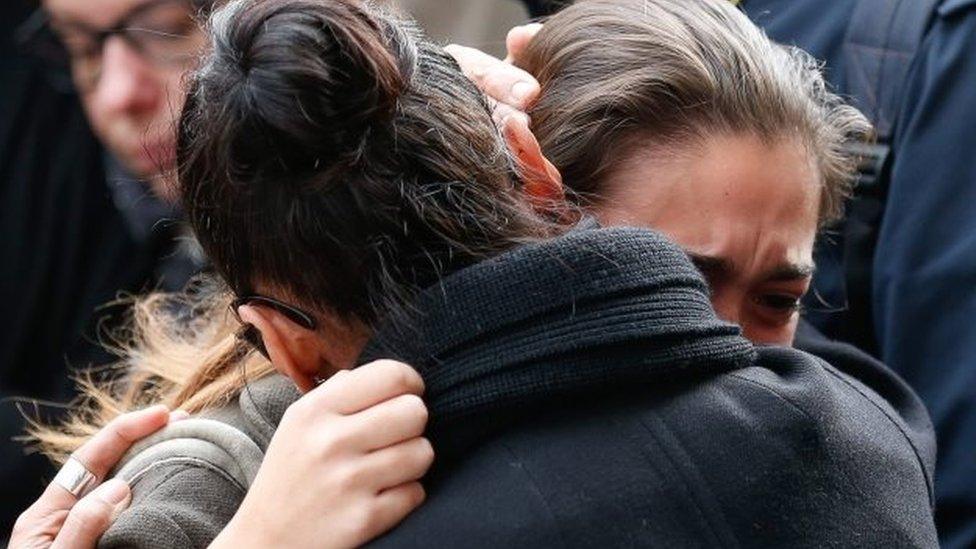
Thousands of people across Europe observed a minute's silence following the attacks in Paris that killed 129 people
London is home to up to 300,000 French people, making the UK capital arguably one of the world's largest French cities. How have they reacted to Friday's terror attacks in Paris which left at least 129 people dead and hundreds wounded?
"The French are very vocal, they need to express themselves and share the confusion and pain," says Pascal Grierson, the CEO of French Radio London - a dedicated French language broadcaster for expats.
The station's core audience is the thousands of French citizens living in London who are now so numerous, former president Nicolas Sarkozy dubbed it the sixth largest French city in the world.
"We've been monitoring our social media channels and there's a couple of dominant themes coming out," Mr Grierson says.
"The main one is, 'why is it France that has been targeted?'
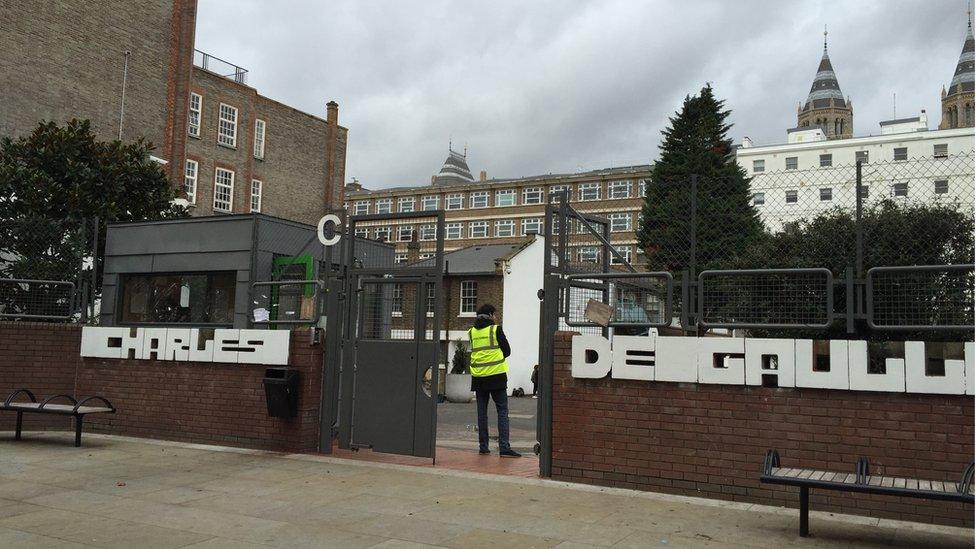
Pupils at the Lycée Français Charles de Gaulle in South Kensington were told not to hang about outside the school during break time.
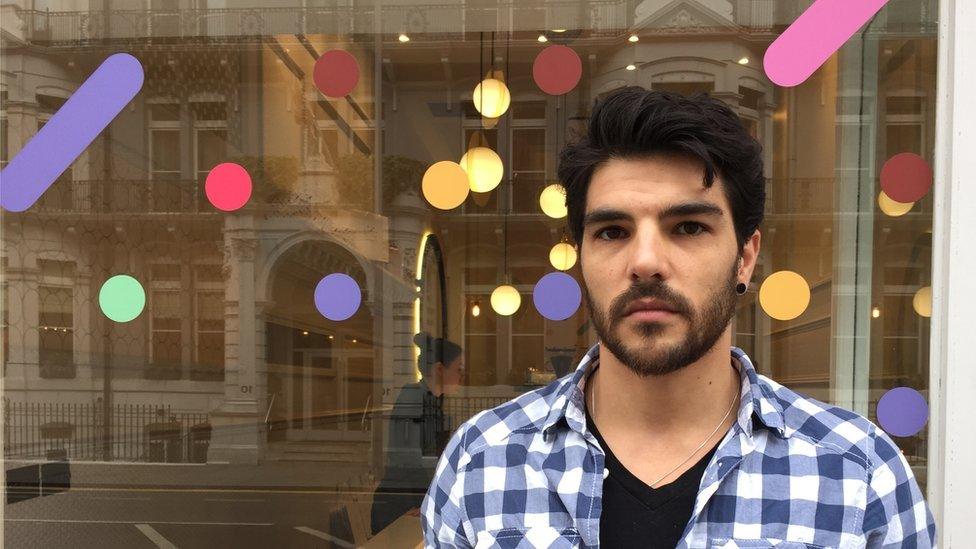
Military action or demonstrations of solidarity "won't stop these people hating you", according to pastry chef Joachim Prat who lives in Clapham North
"In comparison to the Charlie Hebdo attacks, this feels more random and ended up killing people of their own proclaimed faith.
"The French have a very tense relationship with the Muslim community in France anyway. What underlies all of this is the attackers' attempt to destabilise our relationship further with the French-Arab community.
"On social media people have been telling us they want the fascist right wing to rise because then Daesh [the so-called Islamic State group] will have a proper fight on their hands."
Marine Le Pen's far-right Front National party is predicted to gain seats in France's regional elections in December and earlier she called for an "immediate halt" to France accepting any more refugees in the wake of the Paris attacks.
President Francois Hollande has ordered air strikes on Isis targets in Syria in response to the multiple attacks in Paris.
"Up until the air raids started last night, people were calling for some sort of retaliation," says Mr Grierson.
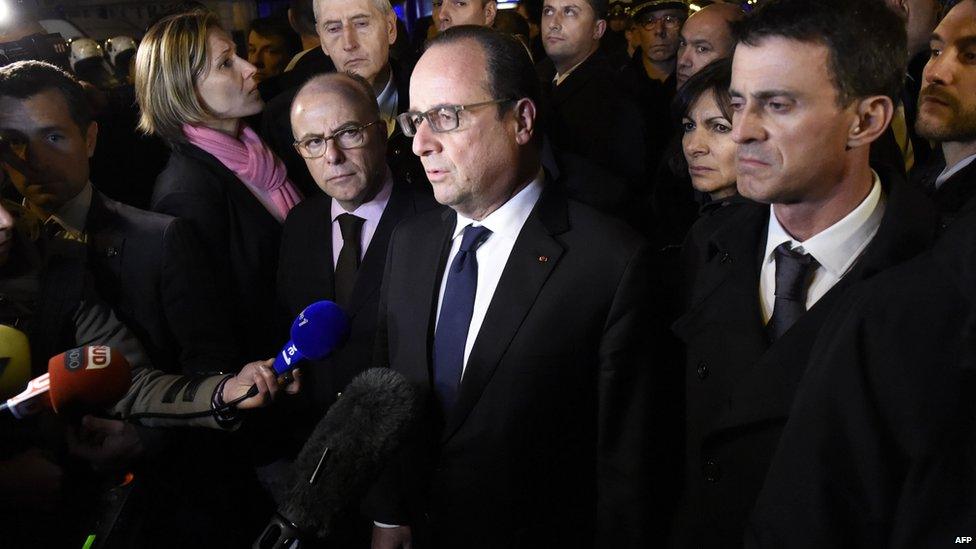
President Francois Hollande described the attacks as an "act of war" and said France would destroy the so-called Islamic State
"French people are relieved by that.
"What we haven't seen yet is the French Arab perspective on this. I have heard some Muslims in this country [UK] talk about how they feel but I think French Arabs in France are keeping their heads down at the moment, largely, except to join in condemning these attacks.
"So many are good people and non-radicalised, but they have a big PR problem and they are going to need to work on that."
Wali Deruwara identifies himself as a French Arab. The 18-year-old of Malian descent has a job in a French cafe in South Kensington but comes from Paris's suburbs.
"It's normal for people to be scared of Paris after this," he says. But "it's not right" they should blame migrants, he continues.
"There were black people that died in these attacks, it's not just white people," he said.
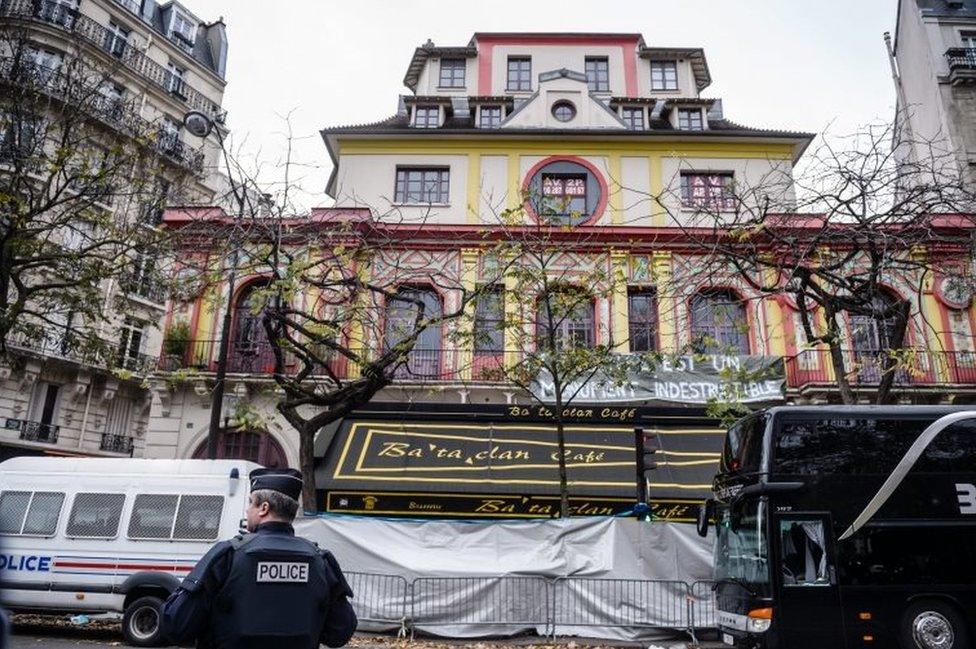
Gunmen held people hostage inside the concert venue and shot them one by one until police stormed the building
"It happened very close to where I used to live, next to the Place de Voges," a 48-year-old French mother called Virgine tells me.
She now lives with her family in Fulham, south-west London, but used to live in the 3rd arrondissement close to where the attacks happened in the 11th arrondissement.
"When I saw the pictures on the news, I recognised all the places I used to shop and eat and go out.
"I have friends that were in the Bataclan concert hall. Some of them were wounded but not killed, thankfully. It took some time for them to get any news through to us from the hospital."
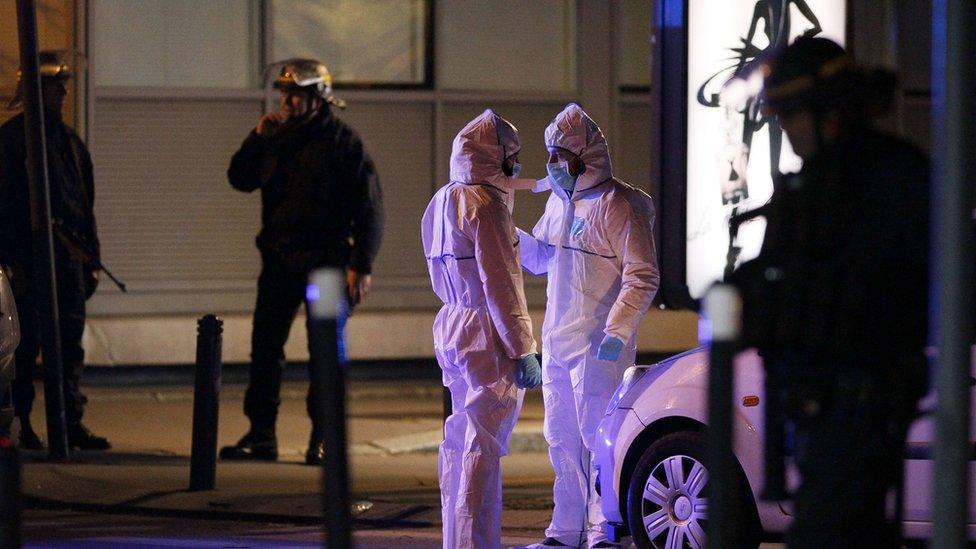
Another attack took place near the Stade de France stadium
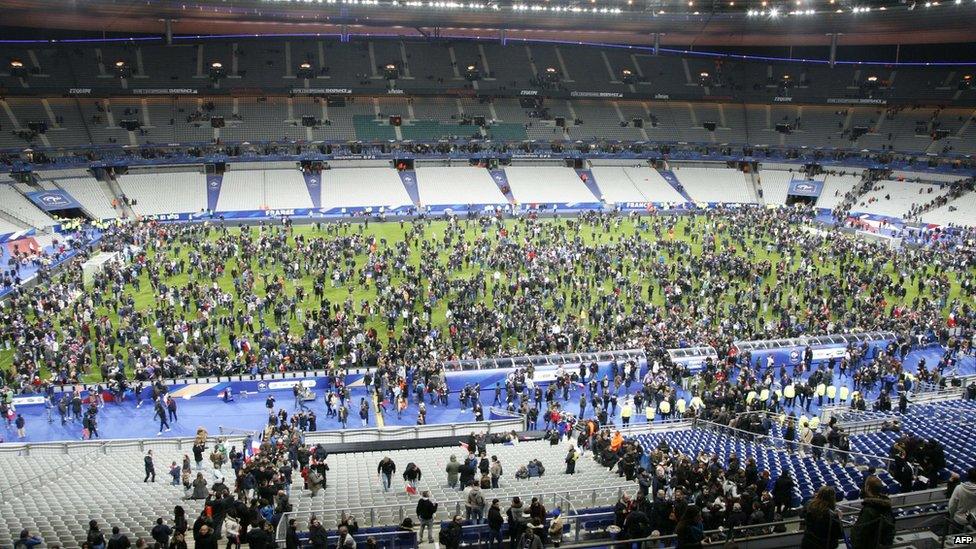
Spectators exited the stadium singing La Marseillaise
She was struck by a sense of helplessness, increased by her physical separation from her home country.
"That's why I felt I had to take my children and go down to Trafalgar Square, just to feel like I was doing something."
Thousands attended an impromptu vigil held in Trafalgar Square on Saturday night organised by Theo Rampal, a restaurant manager from Marseille who lives in Surrey Quays, south-east London.
"I did it to support our families. We are not able to go back to France in this moment, we are not doctors, but this is one way that we could feel like we were helping them from far away."
He estimates at least 6,000 people attended the event.
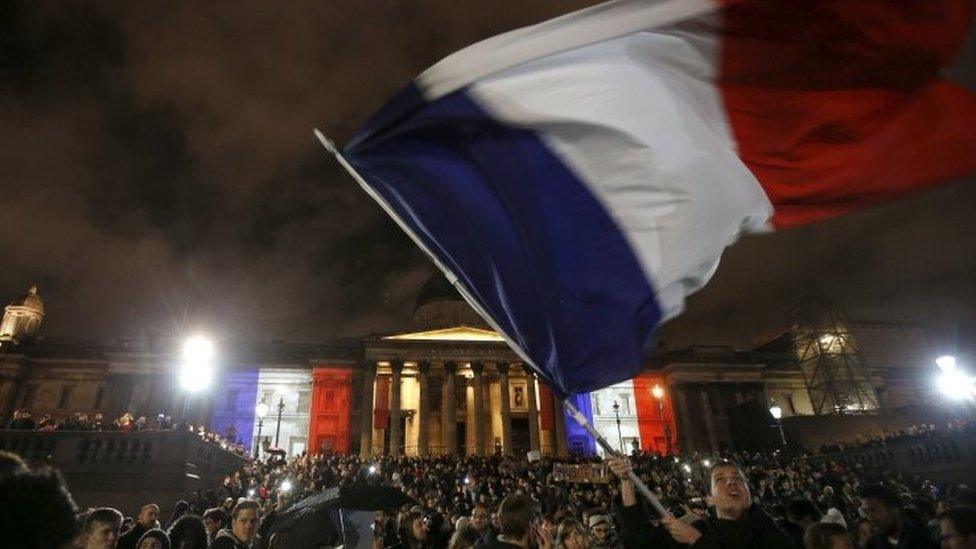
Thousands of people gathered in Trafalgar Square on Saturday to remember the victims of the Paris attacks
"My cousin was in a nightclub behind the Bataclan. She went outside for some reason and saw people shooting into the hall.
"She was confused at first because she didn't understand what was happening then she found a hiding place until police told her it was safe to come out after about five hours, but she heard the screams and was so upset.
"I don't know whether what we did in Trafalgar Square helped at all, but I hope so, to let them know we are thinking of them all," he says.
"I got the breaking news of the attacks on my phone and instantly started texting my friends and everyone I knew out there. It took a while for some people to text me back. I waited for about 24 hours not knowing if they were OK or not. It was awful," says Alice, an 18-year-old humanities student at University College London.
She lives with her parents in Notting Hill, west London, and has friends in Paris and relatives who live in Bolougne Billancourt in the west of the city.
"No-one I knew was badly hurt but friends of mine have lost people and its hurts me the same as if I knew them. It could have been any one of us - they were just people at a concert or going out for dinner, just going about their normal lives. That's what is so scary about it.
"One of my cousins lives in that area and was in an apartment above the cafe that people were being shot in and heard everything.
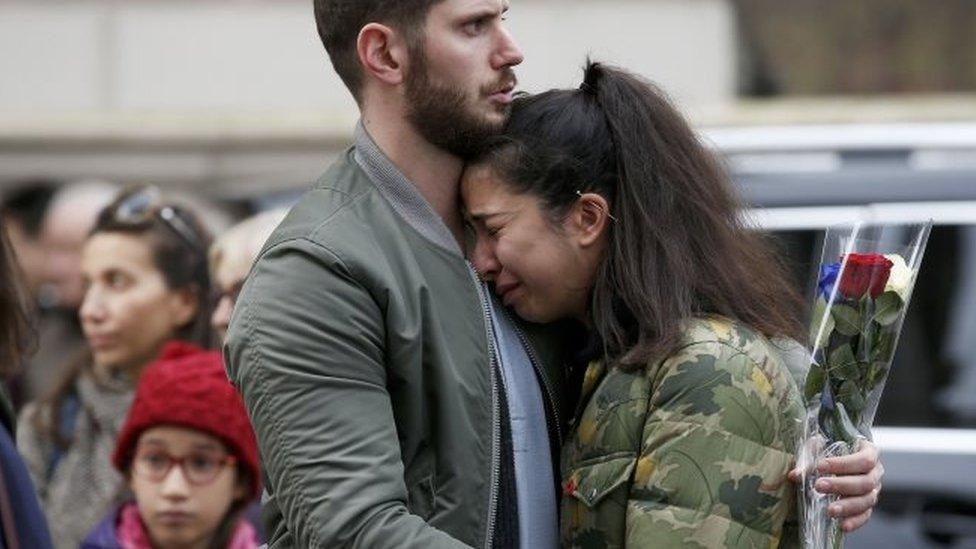
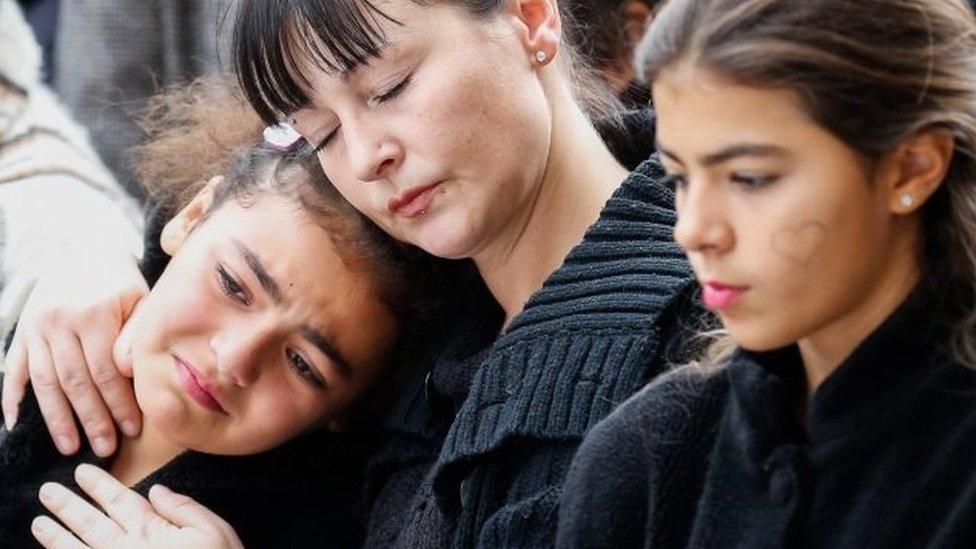
"I just really want to go back to Paris to see my family, even though I know they are safe. I have grown up in London but at a time like this I just want to be with everyone so that we are all together.
"That's why I went to Trafalgar Square, I just had to be with other people to share what we are all going through."
The streets around the Lycee in South Kensington were deserted at the weekend she says and there was a large police presence around the building. Pupils were told not to hang about outside the French Institute or the school during break time.
"This situation is just going to get worse," a French pastry chef tells me.
Joachim Prat, 31, lives in Clapham and runs a patisserie in South Kensington. He says there is no point in mass gatherings to show solidarity.
"Don't get me wrong, I think it's crazy what has happened. But it won't make any difference if we stand in a square together and hold a flag in fraternity. What will it change this solidarity? Bombing won't help either. You don't stop these people hating you by bombing them."

Surdad Kargoli, 44, from South Kensington, originally comes from Baghdad and settled in Ivy-sur-Seine, a suburb in south-east Paris many years ago.
"I think people know there is a difference between Muslims and what these people are who did this in Paris," he says.
"It's become like a disease, people are being infected with this violence and hatred. I am scared about what is going to happen to France in future generations, if we are raising people who can do this to their country, because it's their country as well in some cases.
"I sat up until three in the morning watching it unfold. I was just shocked and surprised. You ask yourself so many questions about how this happened and in the end you finish no better off with no more answers."
- Published16 November 2015
